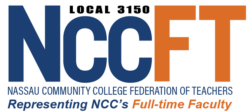Labor Day may have passed, but it is good nonetheless to remind ourselves of all the good labor unions have done and continue to do. Laura Curran, whom we have endorsed for county legislator, put a list up on her Facebook page:
- The 40 hour work week
- Child labor laws
- Vacations
- Sick days
- Workplace safety rules
- Worker’s comp
- The minimum wage
- The two-day weekend
In the post, “Five Things Unions Have Done for All Americans,” Zaid Jilani added health care and the Family and Medical Leave Act. (It’s worth reading Jilani’s whole post for the historical background he gives.)
4. Unions Won Widespread Employer-Based Health Coverage:“The rise of unions in the 1930′s and 1940′s led to the first great expansion of health care” for all Americans, as labor unions banded workers together to negotiate for health coverage plans from employers. In 1942, “the US set up a National War Labor Board. It had the power to set a cap on all wage increases. But it let employers circumvent the cap by offering “fringe benefits” – notably, health insurance.” By 1950, “half of all companies with fewer than 250 workers and two-thirds of all companies with more than 250 workers offered health insurance of one kind or another.”
5. Unions Spearheaded The Fight For The Family And Medical Leave Act: Labor unions like the AFL-CIO federation led the fight for this 1993 law, which “requires state agencies and private employers with more than 50 employees to provide up to 12 weeks of job-protected unpaid leave annually for workers to care for a newborn, newly adopted child, seriously ill family member or for the worker’s own illness.”
In her opinion piece over at CNN, Donna Brazile goes into more depth about the value of labor unions, reminding us that
Collective bargaining affects more than wages and benefits. Union teachers bargain for smaller class sizes. Union nurses bargain for better patient care. When they’re successful — when they’re not shut down by Scott Walker-type governors — we all win.
Working together, union members and their community allies also make up a powerful lobby for the common good. They’ve helped secure for us all the eight-hour day, job safety laws, overtime pay, Medicare and Social Security, civil rights protections, fair treatment for women and lesbian, gay, bisexual and transgender workers and much more.
These are some of the reasons even people who don’t fit the stereotypes of union members have formed unions. Rocket scientists. Architects. Taxi drivers in New York, who are getting health care for the first time.
Carwash workers in Los Angeles. Professional athletes. Writers and directors for TV shows. Go to a movie and you’re enjoying the work of one of America’s most unionized industries, from the actors and camera crews to set designers.
She goes on:
But maybe the most important contribution of unions has to do with basic dignity. Memphis, Tennessee, sanitation workers, aspiring to become American Federation of State County and Municipal Employees members, picked up signs that declared proudly, “I Am a Man,” and formed the setting for the Rev. Martin Luther King Jr.’s “I’ve Been to the Mountaintop” speech.
One of the core tenets of unionism is that all work has dignity. All work deserves respect. And all the people who perform it deserve respect.
This video from Australia, by Manic Studios, offers a satirical take on the question “What Have the Unions Ever Done for Us?”
As you know, we are right now in the middle of contract negotiations. As you know, the stakes in these negotiations are quite high. So it’s good to remember, and to draw strength from remembering, that because we are in a union–because we are a union negotiating for a fair contract–we are also part of a historical movement that has benefitted everyone in our society, union member or not.
